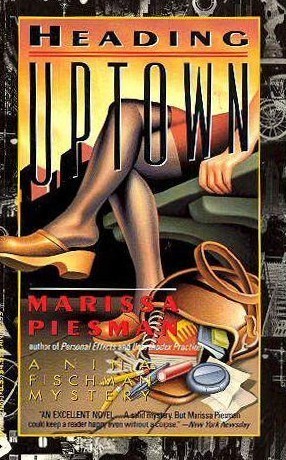I've always enjoyed plot twists. I love it when a novel or movie or short story suddenly changes direction--and it doesn't have to be a surprise ending like The Sixth Sense or The Usual Suspects or Planet of the Apes. Effective twists and reveals can happen anywhere in the story, and in my opinion, the bigger the change, the better.
I've written a lot of these story twists myself, and encountered a lot of them when I'm watching a movie, or reading. So, since I was recently thinking about this kind of thing and also wondering about a topic for today's SleuthSayers post . . .
Here are a few movies that had what I think are memorable and mid-steam plot twists. I liked them all.
Psycho -- The first of the two big surprises in this movie happens before the midpoint, but it's still a good twenty minutes or so into the story. All of you know what it is--Janet Leigh said in an interview that she only took baths afterward, never showers--and it turns what starts out as a theft-and-getaway story into an edge-of-your-seat horror/suspense film.
Marathon Man -- Midway through the movie, we discover that the two characters we've been watching separately, in their own story-worlds, are closely connected--in fact they're brothers. The novel, by the great William Goldman, used the same surprise, and perfectly. This is one of my favorite midstory reversals.
Titanic -- Starts out as a romance and becomes, when the iceberg shows up, a disaster movie. (Not that we didn't expect it.) This reminded me a bit of what happened in the lesser-known Miracle Mile.
The Village -- This one begins as an otherworldly love story/horror story in which residents of a small settlement live in fear of terrible unseen creatures in the surrounding forest--and then becomes a real-world suspense tale. It's probably worth mentioning that none of my writer friends liked this movie. (What do they know? I loved it.)
From Dusk till Dawn -- When a group on the run from the law after a bank robbery stops at a bar in the middle of nowhere, the story turns into a vampire/horror flick. Tarantino at his zaniest.
Gone Girl -- Here, the audience discovers in midstream that the girl who's gone is instead alive and well, and--of course--everything changes as a result. Similar, in that respect, to Laura and The Third Man.
Vertigo -- An investigation suddenly becomes a strange romance. This one also reminded me a bit of Laura.
A History of Violence -- At about its halfway point, a small-town hero is revealed to be ruthless former assassin, and because of this, a local crime story becomes a movie about mafia hitmen. Another little-known movie that 's one of my all-time favorites--probably because I've always liked watching Ed Harris and William Hurt.
Sunshine -- This one changes in the middle from a science-fiction film to a horror/slasher movie.
Predator -- Same kind of thing. Starts out as a jungle rescue operation and turns into a science-fiction/horror tale.
The Sound of Music -- A romance movie becomes (admittedly late in the story) a suspenseful drama about escape from the Nazis. Not a great example, but I wanted to at least mention it.
Bone Tomahawk -- Changes suddenly from a Western to a horror movie. (I read someplace that this one starts out as True Grit and becomes Cannibal Holocaust.)
L.A. Confidential -- This is one of five films I can remember (Psycho, Deep Blue Sea, Executive Decision, and Pulp Fiction are the other four) where one of the most famous and top-billed of its actors is unexpectedly killed off fairly early in the movie. Each of these reversals is an absolute and intentional shock, and leaves the stunned audience wondering What else might happen?
Not that it matters, but here are a few more midstory events that changed everything:
- The chest-buster scene in Alien
- The restaurant murders of McCluskey and Solozzo in The Godfather
- Maggie breaking her neck in the boxing ring in Million Dollar Baby
- The T-Rex escape in Jurassic Park
- The near-miss shark attack on Chief Brody's son in Jaws (turned a land-based investigation into a seagoing survival movie).
NOTE: Also interesting about the above five examples is that four of these films were the original installments of what would become hugely successful multi-movie franchises.
Can you suggest other midstream reversals that I've missed or forgotten? Do you think this kind of plot shift--and jolt to the reader/viewer--adds value to the story? Can you think of any surprises like this that didn't work? How about your own writing--if you use plot twists, do they ever happen in the middle of your story or novel?
That's my rant for today. Take care, and keep writing!































